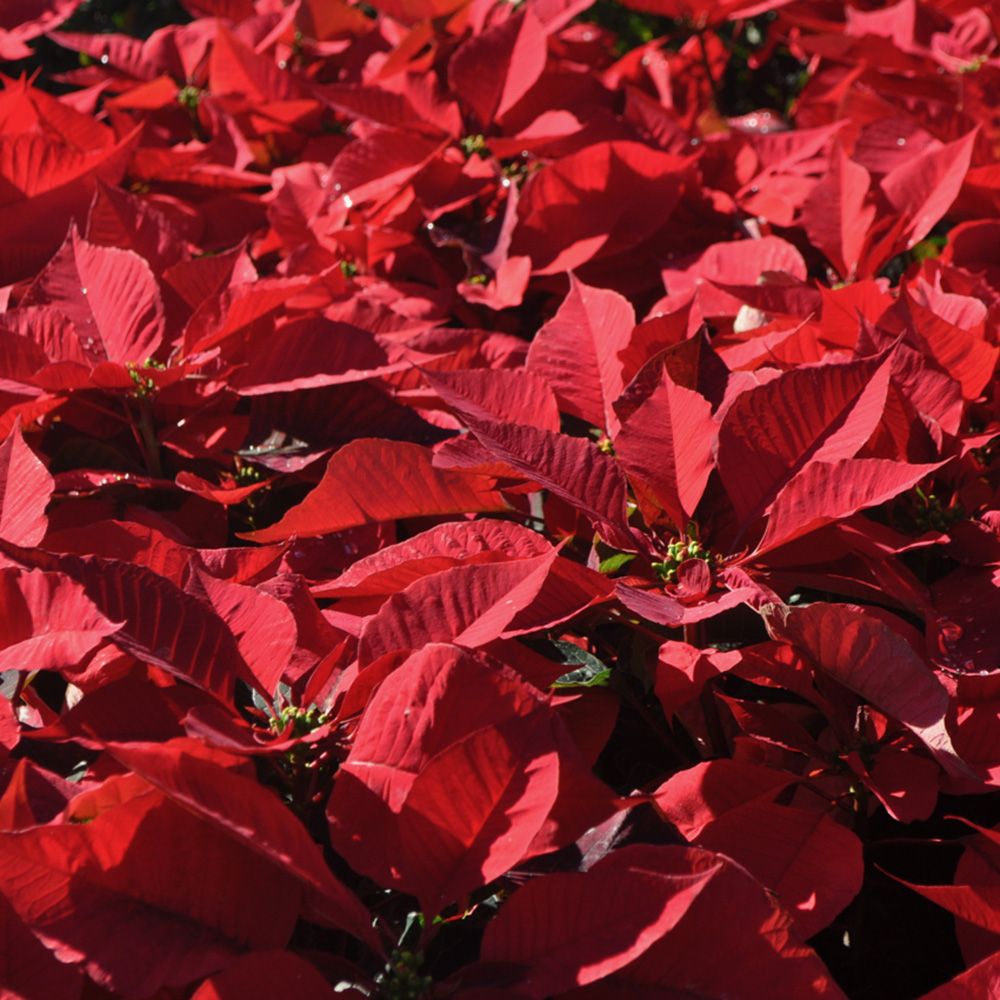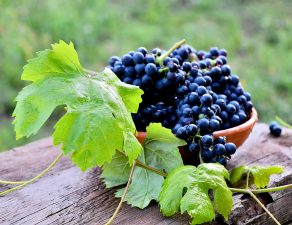
Poinsettias are most commonly associated with Christmas, but most will thrive long after the holidays are over. That leaves you with a dilemma: Should you throw out a perfectly healthy, attractive plant, or keep it around to enjoy again next year?
Typically, poinsettias are associated with bright red flowers, but also are also available in shades of white, pink, salmon, yellow, and apricot. You can even find marbled or speckled varieties, in which several shades are blended together. As for those “flowers,” they’re actually not flowers at all! The flowers of poinsettias are quite small, and located inside bracts of brightly colored leaves. Whether you want to think of them as flowers or bracts, poinsettias will bloom starting in November and remain in flower throughout winter.
Poinsettias are native to Mexico, and are compatible with our climate here in Southern California. If you decide to keep your poinsettias, here is what you need to know:
- Poinsettias need about 6 hours of bright, indirect sunlight per day.
- Water your poinsettias regularly, but avoid over watering. If the soil feels slightly damp to the touch, you’re doing it right.
- In April, prune your poinsettias back to about 8 inches in height. You can fertilize your plants once new growth begins.
- You can move your poinsettias outdoors, so long as temperatures remain above 50 degrees.
- In the spring, you should gradually introduce your poinsettias to longer periods of full sun before moving them outdoors.
- In the fall, move your poinsettias back indoors. They will need at least 14 hours of darkness each night to prompt their blooming. Remember that they still need 6-8 hours of bright sunlight each day.
For some reason, poinsettias have received an undeserved reputation for being poisonous, and that’s probably why many people are reluctant to keep them around throughout the year! The truth is that poinsettias rarely pose a real threat to children or pets. The average child would have to consume around 500 poinsettia leaves in order to be harmed by the plant. Cats and dogs sometimes exhibit mild symptoms of poisoning after nibbling poinsettias, but clinical treatment is almost never needed. If your pet does appear tempted by your poinsettias, simply keep your plants out of reach.
For more information about poinsettias, give us a call! We will be happy to show you how to care for these beautiful seasonal plants.









Write a comment: